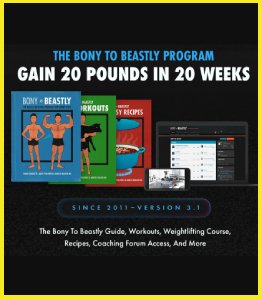
High-Calorie Foods to Help Skinny Guys Bulk Up
Skinny individuals often grapple with a unique set of challenges when trying to gain weight and build muscle, especially in a world obsessed with low-calorie and diet-focused foods. For “hardgainers” or ectomorphs, achieving noticeable muscle growth relies not just on increasing calorie intake, but on consuming the right kinds of foods that encourage muscle development rather than simply accumulating fat. Fad diets and quick-fix exercise regimens may promise rapid results, but building sustainable muscle mass demands consistent nutrition founded on high-calorie, nutrient-dense options paired with a solid strength training plan. Understanding how to strategically use nutrition to support bulking efforts can transform the process from frustrating to effective.
Central to any successful muscle-building strategy is the distinction between “dirty” and “clean” bulking. Dirty bulking, typified by the consumption of large quantities of calorie-rich but nutrient-poor junk foods, may increase the number on the scale, but most gains will be in the form of unwanted fat and can undermine overall health. In contrast, clean bulking focuses on whole, minimally processed foods that are rich in both calories and essential nutrients. This approach supports not only muscle growth but also optimal health, strong immune function, and long-term wellbeing. It helps steer clear of complications associated with poor dietary choices, such as high cholesterol and hypertension, while allowing individuals to build lean muscle without excessive fat gain. As a result, the clean bulking method is consistently recommended for those prioritizing both improved physique and overall health outcomes.
The practical application of lean bulking revolves around incorporating high-calorie foods that deliver essential macronutrients and micronutrients to the body in forms it can efficiently use for muscle repair and growth. Nuts and seeds play a prominent role due to their dense caloric content and balance of healthy fats, protein, and fiber. Almonds, cashews, walnuts, hazelnuts, and seeds like pumpkin or sunflower, all boast significant caloric loads in small servings. A mere handful of almonds, for instance, can provide around 120 calories, several grams of protein, and a healthy dose of monounsaturated fats and fiber. These foods are not only convenient for snacking but also versatile as toppers for oatmeal, salads, or main dishes, multiplying daily calorie totals with minimal effort.
Nut butters, created from these same healthy foods, further simplify the quest for additional calories. Whether it’s peanut, almond, cashew, or sunflower butter, these spreads allow for nutrient-rich calories to be easily incorporated into breakfasts, snacks, and smoothies. Spreading nut butter on fruits or whole grain toast, or spooning it directly into shakes, are easy ways to bump up intake while providing stable energy and protein to fuel muscle repair after training.
Healthy fats are another cornerstone of smart bulking. Olive oil stands out as a top choice, offering about 120 calories and 14 grams of healthy fat per tablespoon. Its monounsaturated fat profile supports heart health and can be effortlessly added to cooked grains, vegetable dishes, salads, or drizzled over proteins. Avocado similarly supports bulking goals, with over 200 calories per fruit, mostly in the form of monounsaturated fats that have been linked with improved cardiovascular health, regulated blood glucose, and favorable changes in body composition. Its creamy texture complements a wide range of foods, from sandwiches and bowls to guacamole and smoothies.
For those who find it difficult to reach calorie targets through whole foods alone, commercially available weight gainer shakes and powders can fill the gap. These products are designed to deliver balanced amounts of protein, carbohydrates, and healthy fats—often including ingredients like whey or plant-based proteins, oats, or medium-chain triglycerides—tailored specifically for muscle growth. However, it’s important to choose blends that align with personal dietary preferences and to use them as supplements to, rather than replacements for, a whole-foods-based diet.
Dairy products contribute another avenue for increasing calorie and protein intake efficiently. Full-fat milk and yogurts are easy to incorporate into meals and snacks, providing a reliable mix of protein, carbs, and fats, along with bone-supporting calcium. Drinking whole milk or adding yogurt to parfaits and shakes are simple ways to elevate daily intake and support the demands of muscle growth.
Cheese offers a concentrated source of calories, protein, and essential nutrients like calcium. Options such as mozzarella, ricotta, cheddar, and cottage cheese vary in fat and protein content, allowing for personalized choices based on individual bulking and dietary needs. Cheese can be used in meals, snacks, or even as a standalone protein source, enriching dishes with flavor and valuable macronutrients.
Butter, sometimes overlooked in health-conscious circles, helps boost caloric density with minimal volume. It’s especially helpful for those struggling with appetite as it can be added to vegetables, grains, or protein-rich dishes to increase energy intake efficiently, while also delivering fat-soluble vitamins A, D, and E.
Fatty fish like salmon, mackerel, and sardines emerge as ideal protein sources for bulking thanks to their high calorie content, rich omega-3 fatty acid levels, and essential nutrients like vitamin D. These fish not only facilitate muscle growth but also contribute to reduced inflammation and improved overall health. For plant-based individuals, supplemental vegan omega-3 products can deliver similar benefits for heart and metabolic health.
Carbohydrates are frequently maligned in diet culture, yet they are vital for energy—especially for individuals aiming to build muscle mass. The focus should be on complex carbohydrate sources such as whole grains, brown rice, sweet potatoes, beans, legumes, and oats. These foods provide calories, fiber, and a host of vitamins and minerals that support training performance and recovery. Avoiding processed carbohydrates and sugar-laden alternatives ensures a sustained energy supply without the health drawbacks of refined foods.
One essential principle for skinny guys seeking muscle growth is careful tracking of daily calorie and protein intake. Aim for a caloric surplus of at least 500 calories per day and ensure protein consumption falls between 1.0 and 2.0 grams per kilogram of body weight. Protein supports the repair and building of muscle tissue after rigorous training sessions, maximizing the results of strength workouts.
It’s not enough to simply eat more; consistent and progressive resistance training is required to direct extra calories towards muscle gain rather than fat accumulation. Using structured routines built around progressive overload ensures that muscles are regularly challenged and thus prompted to grow. Various online calculators and tools allow individuals to determine their specific caloric requirements based on activity level, current weight, and growth targets, taking much of the guesswork out of planning a successful bulk.
For those needing a step-by-step approach, professionally developed diet plans tailored for ectomorphs and hardgainers provide comprehensive guidance. These plans often include day-by-day meal breakdowns, tailored macronutrient splits, shopping lists, and sample workout routines, making it easier to stick with the process and avoid common pitfalls. With the added support of post-workout smoothie recipes and flexible guidance for adapting the plan to ongoing progress, such resources can be especially valuable for beginners or those who have struggled with ineffective bulking in the past.
Successfully bulking up as a skinny guy hinges on the regular intake of high-calorie, nutrient-rich foods, thoughtful macronutrient distribution, and a structured training program. Additional attention to protein intake, healthy fats, complex carbohydrates, and supplementing as necessary sets the stage for sustainable muscle gain. Maintaining patience and consistency, while trusting in the process and making adjustments as the body responds, is crucial for turning early struggles into lasting results on the journey to increased muscle mass and strength.







Leave a Reply